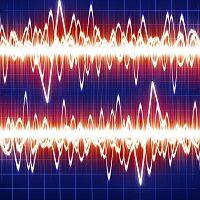Article
Antibody Type Key to Severity of Autoimmune Epilepsy
Author(s):
Drugs do not usually help patients with autoimmune epilepsy but surgery may. The severity of illness appears to vary depending on which antineuronal antibodies are present.

Epilepsy that is caused when the immune system attacks nerve cells can be resistant to drug treatment. But there are differences in the severity of this autoimmune epilepsy depending on which neuronal antibodies are present.
In two studies on autoimmune epilepsy presented at the American Epilepsy Society 69th Annual Meeting in Philadelphia, PA, a Canadian team looked at how epilepsy varies depending on the antibodies present while a Spanish team found surgery may help patients regardless of which antibodies they have.
In the first study, Claude Steriade, MDCM, a neurology resident at the University of Toronto, Toronto, Canada and colleagues found patients with anti-Ma2 antibodies had different disease characteristics than those with GLI1 antibodies.
In addition to seizures, other neurological symptoms including narcolepsy, ophthalmoplegia, and behavioral changes were frequent among anti-Ma2 patients.
"Patients with anti-Ma2 antibodies exhibited a more malignant course compared to patients with LGI1 antibodies" the team wrote in its abstract.
Though seizures were refractory to antiepileptic drugs in the majority of LGI1 patients and all anti-Ma2 patients, the Anti-Ma2 patients showed a poorer response to immunotherapy than LGI1 patients. They also exhibited multifocal epileptogenic foci.
In a related study, researchers from Hospital Clinic in Barcelona, Spain reported on 11 patients with drug-resistant epilepsy and immune dysfunction who were treated surgically.
Before surgery, a variety of autoimmune antibodies were identified in each of the patients (including two patients with antiMa2 antibodies, 5 with anti-GAD, 1 with anti-Hu, 2 with anti-VGKC, 1 with antiLG1 and 1 with antiCASPR2).
Five patients were seizure-free or almost seizure-free at the last post-surgical follow-up visit, and those patients had a diverse array of anti-neuronal antibodies including LG1 1, VGKC associated to anti GAD 1, anti-Hu 1, anti Ma2 1 and anti-GAD 1.“Surgical treatment may improve seizure frequency in some patients with drug-resistant epilepsy associated with anti-neuronal antibodies." the team wrote. The outcomes did not vary with antibody type. Various surgical procedures were used." But the small number of cases and the different approaches strongly suggest the need for guidelines to better classify these patients and international registries to study outcomes in larger populations,” Mar Carreño, MD, PhD concluded in the abstract.




